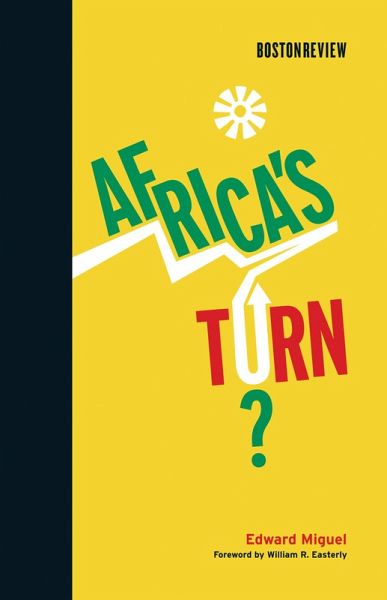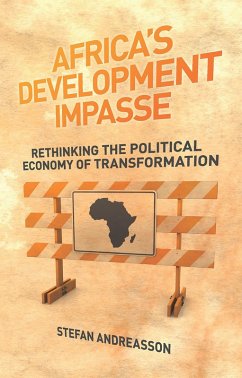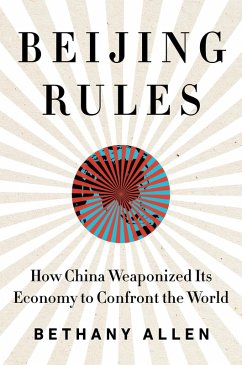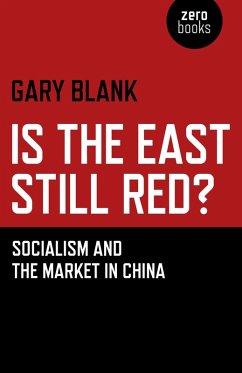
Africa's Turn? (eBook, ePUB)
Versandkostenfrei!
Sofort per Download lieferbar
9,95 €
inkl. MwSt.
Weitere Ausgaben:

PAYBACK Punkte
5 °P sammeln!
Signs of hope in sub-Saharan Africa: modest but steady economic growth and the spread of democracy.By the end of the twentieth century, sub-Saharan Africa had experienced twenty-five years of economic and political disaster. While economic miracles in China and India raised hundreds of millions from extreme poverty, Africa seemed to have been overtaken by violent conflict and mass destitution, and ranked lowest in the world in just about every economic and social indicator. Working in Busia, a small Kenyan border town, economist Edward Miguel began to notice something different starting in 199...
Signs of hope in sub-Saharan Africa: modest but steady economic growth and the spread of democracy.
By the end of the twentieth century, sub-Saharan Africa had experienced twenty-five years of economic and political disaster. While economic miracles in China and India raised hundreds of millions from extreme poverty, Africa seemed to have been overtaken by violent conflict and mass destitution, and ranked lowest in the world in just about every economic and social indicator. Working in Busia, a small Kenyan border town, economist Edward Miguel began to notice something different starting in 1997: modest but steady economic progress, with new construction projects, flower markets, shops, and ubiquitous cell phones. In Africa's Turn? Miguel tracks a decade of comparably hopeful economic trends throughout sub-Saharan Africa and suggests that we may be seeing a turnaround. He bases his hopes on a range of recent changes: democracy is finally taking root in many countries; China's successes have fueled large-scale investment in Africa; and rising commodity prices have helped as well. Miguel warns, though, that the growth is fragile. Violence and climate change could derail it quickly, and he argues for specific international assistance when drought and civil strife loom. Responding to Miguel, nine experts gauge his optimism. Some question the progress of democracy in Africa or are more skeptical about China's constructive impact, while others think that Miguel has underestimated the threats represented by climate change and population growth. But most agree that something new is happening, and that policy innovations in health, education, agriculture, and government accountability are the key to Africa's future.
Contributors Olu Ajakaiye, Ken Banks, Robert Bates, Paul Collier, Rachel Glennerster, Rosamond Naylor, Smita Singh, David N. Weil, and Jeremy M. Weinstein
By the end of the twentieth century, sub-Saharan Africa had experienced twenty-five years of economic and political disaster. While economic miracles in China and India raised hundreds of millions from extreme poverty, Africa seemed to have been overtaken by violent conflict and mass destitution, and ranked lowest in the world in just about every economic and social indicator. Working in Busia, a small Kenyan border town, economist Edward Miguel began to notice something different starting in 1997: modest but steady economic progress, with new construction projects, flower markets, shops, and ubiquitous cell phones. In Africa's Turn? Miguel tracks a decade of comparably hopeful economic trends throughout sub-Saharan Africa and suggests that we may be seeing a turnaround. He bases his hopes on a range of recent changes: democracy is finally taking root in many countries; China's successes have fueled large-scale investment in Africa; and rising commodity prices have helped as well. Miguel warns, though, that the growth is fragile. Violence and climate change could derail it quickly, and he argues for specific international assistance when drought and civil strife loom. Responding to Miguel, nine experts gauge his optimism. Some question the progress of democracy in Africa or are more skeptical about China's constructive impact, while others think that Miguel has underestimated the threats represented by climate change and population growth. But most agree that something new is happening, and that policy innovations in health, education, agriculture, and government accountability are the key to Africa's future.
Contributors Olu Ajakaiye, Ken Banks, Robert Bates, Paul Collier, Rachel Glennerster, Rosamond Naylor, Smita Singh, David N. Weil, and Jeremy M. Weinstein
Dieser Download kann aus rechtlichen Gründen nur mit Rechnungsadresse in A, B, BG, CY, CZ, D, DK, EW, E, FIN, F, GR, HR, H, IRL, I, LT, L, LR, M, NL, PL, P, R, S, SLO, SK ausgeliefert werden.













